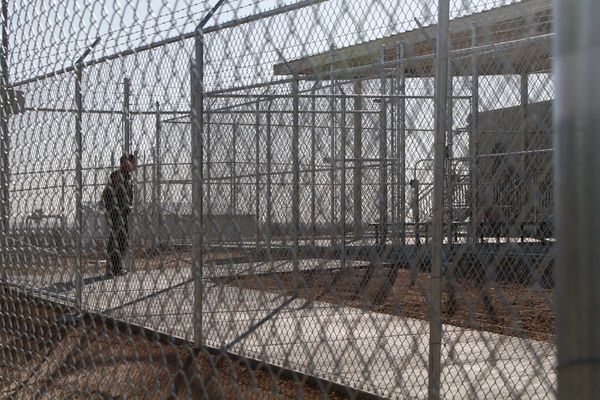
The Advertiser this week launched its “second annual” database of child sexual offenders, promising a regularly updated chart that “includes the names, ages, suburbs, offences and sentences of convicted offenders, provided all of that information is in the public arena and not suppressed”, in response to “mounting” support “for a national and publicly accessible sexual offenders register”.
The campaign is backed by actor and abuse survivor Madeleine West, who told the paper that some of her abuser’s crimes predated her own experience and some were in other jurisdictions.
“Were there a statewide public register, which was connected to a national register, it would have prevented me from being abused,” West said.
Do registers protect potential victims?
Professor Michael Salter, director of Childlight at the University of New South Wales, said evidence that “public naming and shaming of convicted sex offenders protects kids is pretty sparse on the ground”.
“Ninety-five per cent of all child sex offences are committed by people who don’t have any criminal conviction for sexual abusing children,” he said. “So a public sex offender registry is only identifying the very small number of people who have been caught for abusing kids, and there is actually a risk that it provokes unjustified sense of security in the public.”
An Australian Institute of Criminology report on the subject in 2018 concluded that:
Research findings on the effectiveness of public sex offender registries are mixed. There is little evidence that the US sex offender registration and community notification [SORN] policies have reduced reoffending among registered sex offenders; in fact, some studies have shown that SORN increased sex offence recidivism. Conversely, there is some evidence that SORN has a general deterrent effect on first time or non-convicted sex offenders in the community, likely due to the perceived risk of being placed on a public register.
“We have good data from the United States over the past 30 years, where they have had public sex offender registries, which can indicate that this is not an especially effective child protection measure,” Salter said.
“In fact, it can have counter-intuitive impacts, including increasing the risk of reoffending among some offenders, where these public disclosure schemes result in their community rejection and their ability to access necessary support.”
Potentially unforeseen impacts on family members
The Advertiser’s article launching the database says that it “does not include any information that would tend to identify the victim or survivor of an offence, as their privacy is guaranteed under state law”. But given 83% of child sexual assault victims aged 14 and younger are assaulted by someone they know — according to a submission to the Victorian Parliamentary Inquiry into the Management of Child Sex Offender Information — that could prove difficult.
Salter said that, in addition to potentially “traumatising and destabilising” an offender’s victims, a public list can impact “the non-offending family of many child sex offenders”.
“Some of them will have partners, some of them will have children, and these sorts of public disclosure schemes have an incredible lifelong impact on non-offending family members and on their children, and we already do a pretty terrible job in Australia of supporting this important group of secondary victims,” he said.
“I’ve certainly spoken to non-offending partners who have had to pull their kids out of school. They’ve had to move cities. They’ve had to essentially start their lives all over again once the knowledge of their ex-husband offending becomes public knowledge.”
Is a newspaper the best organisation to administer this?
Publishers in South Australia are legally required to publish “as soon as practicable” any acquittals or successful appeals concerning any criminal proceedings they report upon, and could face a fine of up to $120,000 if they fail to do so.
We asked The Advertiser whether it based its decision to put together a public database on any research or evidence that public databases of this kind are effective in reducing child sex offences, and what work it was doing to minimise the impact on victims and on perpetrators’ non-offending family members.
The publication did not respond in time for publication.
Note: This piece has been updated to reflect the legal obligations faced by publishers in South Australia regarding acquittals and appeals.







